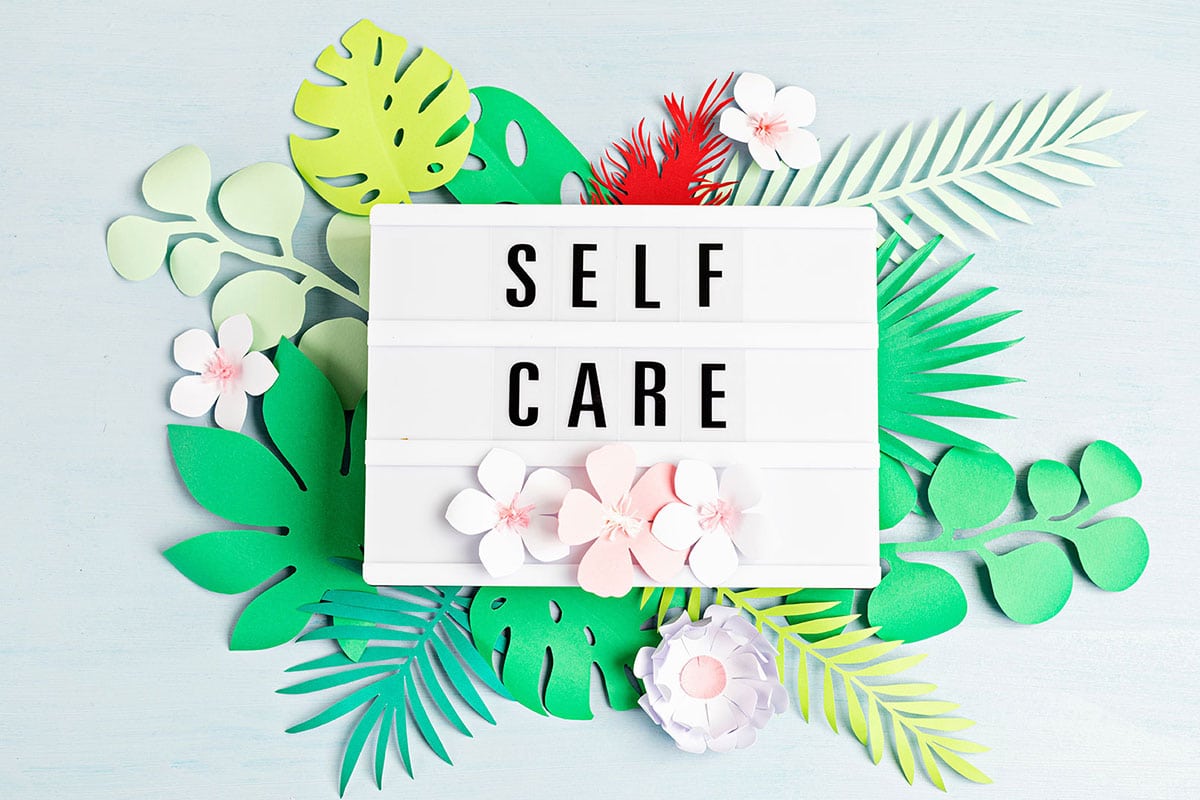
While self-care is unique to each individual, there are some commonalities in the landscape of self-care.
In the past several years, the term self-care has become a buzzword that has extended its reach into social media and even become a target market. The flippant usage of the term and tailored merchandise can often cloud the intention and meaning of self-care.
Self-care is an intentional attunement to different parts of yourself that changes how you are feeling. Self-care is about nurturing our health in various ways to help reduce stress, burnout, isolation, and more. One way to think about self-care is to think of a pie with each slice representing a different part of yourself that needs caring for. Here are some examples of different types of self-care.
Physical Self-Care – The Foundation of Well-being
This slice includes areas of care that are specifically related to your health. Taking your medication, getting enough sleep, going to doctor’s appointments, updating a prescription for glasses are a few examples of medical care that can have a lasting impact on your self. Additionally, nutrition and exercise also fall in the realm of physical self-care. Spending time planning and making meals is challenging to do when juggling varying schedules and needs. It requires intention and discipline. Physical self-care also includes working out. Exercise requires us to carve out time to dedicate to our body. Walking, dancing, running, ask us to switch gears from our daily lives and attune to the capabilities and limitations of our bodies.

Self-Care Ideas for Physical Health:
- Creating a sleep routine
- Walking during part of a lunch break
- Joining a class at the gym
- Using a health app to motivate and track nutrition and exercise activity
- Using a calendar to keep track of medications and doctor’s appointments
Spiritual Self-Care – Nurturing the Soul
This slice represents the concept of believing in something more than one’s self. For some, spiritual self-care can mean participation in an organized religion. This includes belief in a higher power with rituals rooted in tradition, fellowship, and prayer. For others, spirituality is sought through time spent in nature, meditation, journaling, gardening, music, art making. Spirituality seeks a connection and understanding to the world and our place in it. Consideration and reflection of ourselves and how we participate in the world can shape our happiness and sense of purpose.

Self-Care Ideas for Spiritual Well-being:
- Explore guided meditation through an app
- Cultivate a garden
- Participate in a place of worship or prayer service
- Use journaling as an opportunity to reflect on things that motivate and inspire you.
- Volunteer your time at a senior home
- Yoga
Emotional Self-Care – Navigating the Landscape of Emotions
This slice focuses on our emotional health. Our emotions vary and sometimes we need coping skills to manage more difficult emotions. Emotional self-care calls on us to be aware of our emotions and attune to what our emotions are needing.
Self-Care Ideas for Emotional Health:
- Seeking a therapist
- Keeping a journal of your emotions/gratitude journal
- Practice deep breathing exercises
- Create your own affirmations
- Challenge negative self-talk
Mental Self-Care – The Pursuit of Knowledge and Balance
This slice focuses on learning. This can involve learning through organized educational environments. It can also include learning about our thoughts and how they impact our daily lives. Do our thoughts prevent us from interacting with others? Do we have healthy boundaries in our personal and professional relationships?

Self-Care Ideas for Mental Health:
- Listen to a podcast
- Read or listen to a book
- Sign up for a class in something that you’ve always wanted to try
- Try a new recipe
- Attend a featured exhibit or community event
Professional Self-Care – Balancing Ambitions and Responsibilities
This slice includes care for your professional responsibilities and goals. Responsibilities may include advocating for scheduling needs, required breaks, performance reviews, vacation days, and sick time. This might also involve setting boundaries with email response times, and communication during personal time. Care toward professional goals can include reflection on fulfillment of a sense of purpose in your current work or profession. Professional self-care can also involve networking at professional development opportunities or applying for opportunities that promote growth.
Self-Care Ideas for Professional Well-being:
- Use a planner to balance professional and personal time
- Eat lunch and/or relax during scheduled breaks
- Use time management strategies to stay organized
- Attending networking opportunities
- Create a meaningful transition between work and home.
Our schedules can be demanding. The expectations on us looming. Self-care not only benefits ourselves but those we see, interact with, and love.
Stay Updated With The Most Recent News & Blogs From Soultenders.
Get blog articles and offers via email







